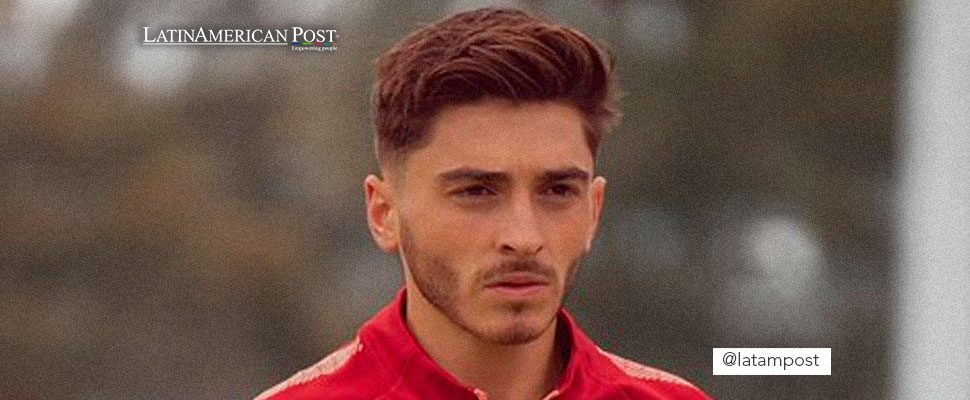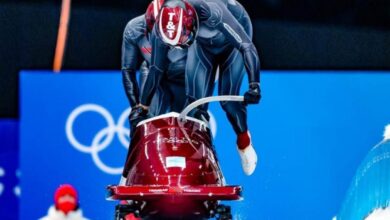Soccer and Homosexuality: A Path that is Still Marked by Fear
Although the professional soccer player Josh Cavallo revealed his sexual orientation in recent days, there are still many athletes who prefer to remain anonymous, why is it thought that soccer and homosexuality are incompatible?.

Homosexuality in some sports is still seen as a top secret matter, as fear of retaliation, rejection or stigmatization are just some of the reasons why athletes’ careers end up affected. Photo: TW-JoshuaCavallo
LatinAmerican Post | Theoscar Mogollón González
Listen to this article
Leer en español: Fútbol y homosexualidad: un camino que sigue marcado por el miedo
The year 2021 is a few weeks from the end and there are still issues that cannot be treated with the normality that characterizes them. Homosexuality in some sports is still seen as a top secret matter, since fear of retaliation, rejection or stigmatization are just some of the reasons why athletes' careers end up affected. However, given the advances that have been made in recent decades on the subject, it is necessary to ask ourselves: are we really on the right track?
An athlete's personal life is as essential and important as their sports career, so hiding it can cause them incessant anguish by not feeling completely free to act naturally in their day-to-day lives. This point was perfectly understood by a young Australian soccer player named Josh Cavallo, who confessed in recent days through his Twitter account that he is homosexual. His emotional message was accompanied by a video and a series of letters where he disclosed his motivation to speak on the subject.
"I hope that by sharing who I am, I can show others who identify as LGTBTQ + that they are welcome in the soccer community," Cavallo wrote in his letter. Reactions in the world of soccer and sports in general did not take long to support the 21-year-old. International figures like Gerard Piqué and Antoine Griezmann said they were proud of him, while a basketball idol like Pau Gasol expressed his opinion saying: "In 2021 this should not be news. Thank you for this step forward for the sport. Well said, @JoshuaCavallo! ".
Josh's Truth pic.twitter.com/NKSEP2kVWV
— Adelaide United (@AdelaideUnited) October 27, 2021
The latent fear in soccer
It is worth mentioning that there are hundreds of elite athletes who have already confessed their sexual orientation, although most did so once their careers were completed. What does this give us to understand? That the fear of any type of retaliation, insults and even a blow to their popularity remain latent in their lives, to the point of preferring to remain anonymous and away from the spotlight.
Precisely, the world of men's soccer is the most prone to fear winning by a landslide. To many people the idea that homosexuals exist in the leagues with the largest following in the world may seem absurd, but the truth of the matter is that a large percentage of athletes have not yet had the courage to take that important step. In fact, a recent example was seen in the Premier League of England in 2020, where a soccer player anonymously published a letter assuring that he was suffering from mental health problems because he could not live his sexuality in freedom.
Read also: Beyond Mohamed Salah: The Most Valuable African Soccer Players
The opposite case is seen in women's soccer, which has the particularity of being more "open" in terms of the prejudices that the players may receive. However, for them it is not all pink, since in the middle of 2021 they still suffer the constant manifestations of hatred and homophobia that cross the playgrounds.
The other side of the coin
The voices of support for those athletes who make the decision to confess their homosexuality will always be present. However, the other side of the coin shows us that there are also elite athletes who advise their homosexual partners not to say so publicly. Certainly, it is hard to believe and the question that instantly arises is why not? Soccer is one of the sports that is experienced with the greatest intensity in the world, both for better and for worse, and it is precisely in that last line that both racist and homophobic insults proliferate. The idea is to protect others and thus avoid worse situations when stepping on a pitch.
«Sobre el terreno de juego se suelen utilizar ciertas palabras, y teniendo en cuenta las emociones que se llegan a vivir en las gradas no podría asegurar que no terminaría siendo insultado y menospreciado. El jugador que decida dar el paso contaría con el apoyo de muchos lados. Eso sí, dudo que sea el caso en el campo ante la afición rival». – Toni Kroos, jugador del Real Madrid, para la revista GQ
Now, when we focus our attention on the institutions that should watch over these issues, we find that they are the ones who continue to contribute to the maintenance of homophobia in the stadiums. UEFA had a couple of recent precedents that raised a wave of criticism and also made it clear that there is no room for sexual diversity in European soccer. The body opened a file to the German goalkeeper Manuel Neuer for wearing a rainbow bracelet in favor of gay rights during the last European Championship. Similarly, they also prohibited the Allianz Arena stadium from being illuminated with the colors of the LGTBI flag.
In short, the courage of those athletes who have decided to confess their homosexuality and thus break down barriers is nothing more than a source of pride in this long and difficult path as sport is. There is still a long way to go in a world that continues to see these issues as taboo, in disciplines where homophobia is the order of the day, and in countries that have a somewhat retrograde culture. Taking that step for a better coexistence will not only depend on the protagonists, but also on us as a society.
Hey @JoshuaCavallo, I don’t have the pleasure to know you personally but I want to thank you for this step that you take. The world of football is far behind and you are helping us move forward. https://t.co/pe8xdJl15i
— Gerard Piqué (@3gerardpique) October 27, 2021




